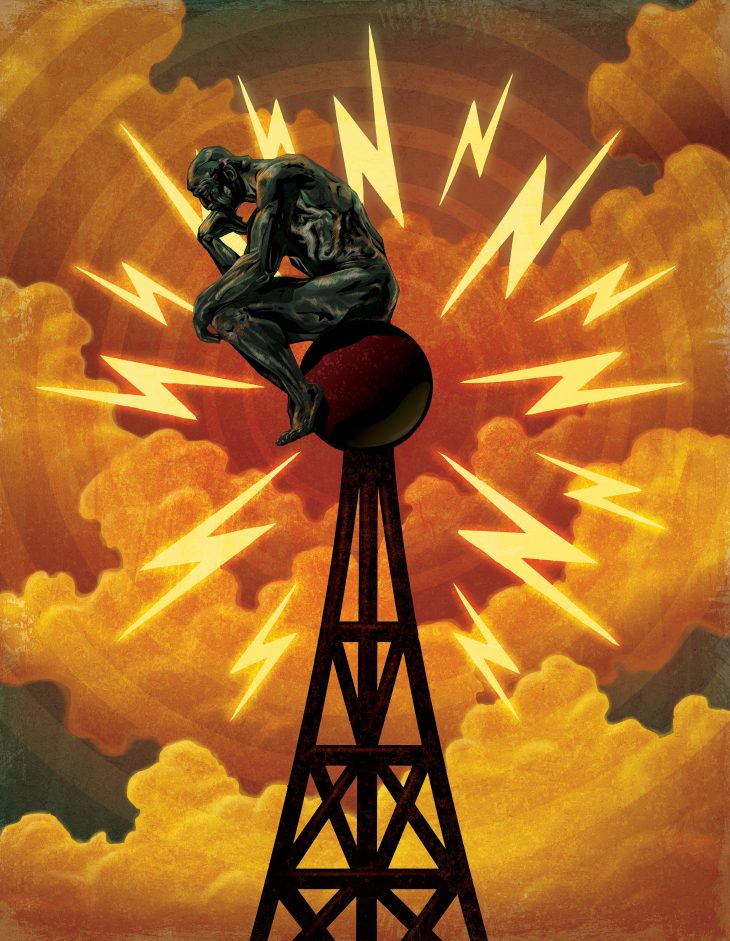
When U.S. studios go direct to consumer, will anything be left of the Canadian TV industry?
I HAVE A Plan A, and a Plan B.
Plan A is a solid, workable, and absolutely necessary approach. One I and others have been advocating for almost 20 years.
Unfortunately, I am very much afraid that it is now too late. By the time the Broadcast and Telecom Legislative Review (BTLR) Panel presents its interim report (due June 2019), and then we have an election, and then the Final Report is delivered at the end of January 2020, and then assessed by a new government, we will definitely be at least in 2021, if not later.
In Internet time, that is an eternity.
It may well be that the Canadian broadcasting system will have been decimated in the meantime… and by decimated, I mean decimated. Very possibly no more CTV, no more Global, no more lots of broadcasters. All it will take is one existing U.S. powerhouse like ABC, CBS or NBC to decide to bypass the Canadian broadcasters completely and to themselves use digital streaming to broadcast and secure advertising for all their content in Canada, and then it is game over.
The Can-pocalypse is coming.
Canada fought hard to exempt the cultural industries in the recent renegotiation of the U.S., Mexico, Canada trade agreement (USMCA). However, if the U.S. broadcasters decide to stream their content into Canada, and more immediately if global digital behemoths like Apple, Google, Amazon and Netflix are allowed to continue to do as they are now already doing, in a totally unregulated manner, then our fight to maintain that cultural exemption—and the jobs of creators and broadcasters of Canadian cultural content— will have been for naught.
We are in dire peril of a back-door gutting of the cultural exemption in the film and television industries. Our heavily regulated broadcasters cannot survive totally unregulated competitors.
So, what is Plan A? Three things.
- Revoke the Digital Media Exemption Order (DMEO). By that order the CRTC has said it won’t regulate the digital services. But, hello! The digital services will be, and to a great extent already are, the Canadian broadcasting system. If you are the broadcast regulator you need to regulate that broadcasting system. So, revoke the DMEO (at least for long-form content). Revoking the DMEO, however, is not enough.
- Once it’s revoked, we need to know what regulations should be implemented for digital, and in this regard I think an excellent starting point is the current treatment of Canadian Pay-TV services. In other words, light handed regulation to provide a pride of place—a discoverability—via the advertising and the algorithm placement, for Canadian content on the digital services, combined with a percentage (we can argue whether it should be 5% or 30% or somewhere in between, the important point is that there’s a percentage) of gross revenues of the digital services to be invested in the licensing of Canadian content.
- Third and finally, we need to amend the Broadcasting Act and the Telecommunications Act (this is at least under way) to empower the CRTC with any further tools it needs to implement the regulation, and then enforce its regulation, of the digital services.
I think Plan A is necessary but as I said, I fear it’s already too late.
So, we’re going to have to come up with a Plan B: What to do once the Canadian broadcasting system is decimated.
When the Can-pocalypse arrives, we will still want Canadians to be producing content, so we will still very much need Plan A. But the decisions as to what the Canadians produce will no longer be in the hands of Telefilm and the CMF and other Canadian institutions. Those decisions will be in the hands of the dark foreign overlords.
That brings us to Plan B.
In my book, there are several stories which cast the CBC in a negative light, which might make you believe that I am anti-CBC. But it’s actually 100% the reverse. I think we need the CBC more than ever.
That’s Plan B, actually: More dollars and resources, much more dollars and resources, for public broadcasters. I think, of course, primarily of the CBC which is going to play an even more vital role in the coming decades, as Canadian private broadcasters fall by the wayside, but CBC is not the only one.
There are a number of public broadcasters or quasi-public broadcasters in French and English and aboriginal and other languages, who not only deserve our support, but we need their support in our battle to retain Canadian sovereignty and identity.
Stephen Stohn is an entertainment lawyer and executive producer and president of Skystone Media. Once referred to as the “Forrest Gump” of Canadian media, his clients have included k.d. Lang, Alannah Myles, Blue Rodeo, Cowboy Junkies, Tom Cochrane, Glass Tiger, the Northern Pikes and more. He was a film and TV exec behind Degrassi and the Juno Awards, among other things. His book Whatever It Takes: Life Lessons from Degrassi and Elsewhere in the World of Music and Television is available at Indigo, Amazon, iBooks, Kobo, and other fine bookstores.
The above column is an adaptation of his presentation at the International Institute of Communications Canadian chapter conference on October 31st.



